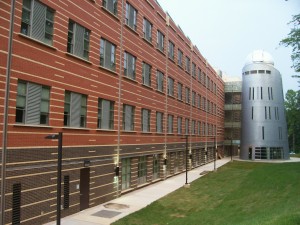See front page of NOVAC Site for changes to event.
More information about Great Meadow including directions and parking visit the Great Meadow Site page.
Most forecasts predict cloudy skies with a 10 to 20 percent likelihood of light rain or drizzle. Conditions won’t be suitable for astronomy.
Even though the Clear Sky Chart currently predicts only 10% cloud cover <http://www.cleardarksky.com/c/CrckttPrkVAkey.html>, most of the other
weather-guessers say that the evening will be cloudy with a significant chance of precipitation
<https://weather.com/weather/hourbyhour/l/22728:4:US>
<http://www.accuweather.com/en/us/midland-va/22728/hourly-weather-forecast/2111280?hour=19>.
Please read the C.M. Crockett Page for park details.
Venus will be at its “greatest western elongation”. This is a great time to view Venus since it will be at its highest point above the horizon in the morning sky. Look for the enormously bright thing in the western sky before sunrise.

Our meetings on the second Sunday of the Month, The events are normally held evening at 7:00 pm in Research Hall Room 163 on the campus of George Mason University.
Our meetings web page, has directions and additional details.
We look forward to seeing you on Sunday evenings!
Saturn rules the summer sky, but on this night, the ringed planet truly takes center stage. When it reaches opposition, Saturn will be bright and fully illuminated by the Sun. You may even notice that its rings look brighter than usual thanks to a phenomenon known as the Seeliger Effect. Take it all in! Saturn’s rings will be visible in even small aperture telescopes.
A medium-sized or larger telescope will allow you to see Saturn’s rings and a few of its brightest moons.
Cloudy skies and a 10-20% chance of precipitation this evening means that the Crockett Park Public Night is again canceled.
Although the Clear Sky Chart[1] predicts only 10% cloud cover at 21:00 local time, most forecasts [2][3][4] show mostly cloudy skies with a significant chance of precipitation through this evening. Transparency prediction ranges from POOR to TOO CLOUDY TO FORECAST. Not a good night for star gazing.
Hoping for clear skies soon,
Tree Greenwood
Crockett Park Coordinator
Please read the C.M. Crockett Page for park details.
In the northern hemisphere, the longest day of the year when the Sun is farthest north. The summer solstice marks the first day of the season of summer. In the southern hemisphere, this is your winter solstice, marking the shortest day of the year. The declination of the Sun on the (northern) summer solstice is known as the tropic of cancer (23° 27′).
http://scienceworld.wolfram.com/astronomy/SummerSolstice.html

